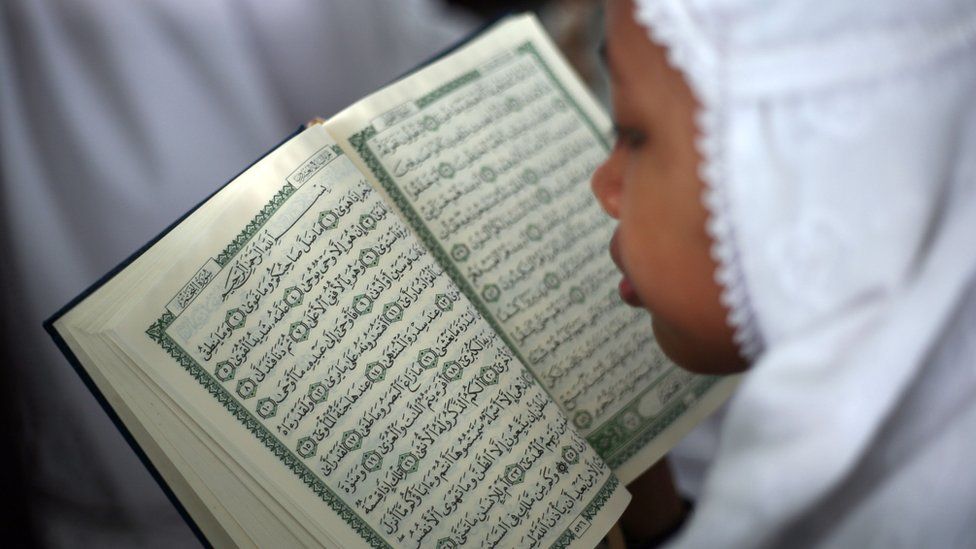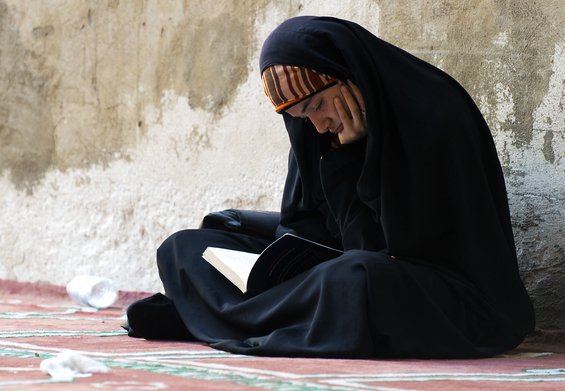
One of the most urgent questions raised by the return of the Taliban to power in Afghanistan is whether the radical Islamist group will again impose draconian restrictions on women and girls. That is the main reason why many women escaped Afghanistan and feared for their life.
In the first press conference, a representative said that “The rights of women in Afghanistan will be respected ‘within the framework of Islamic law’”.
The spokesman said women will be free to work but gave little detail about other rules and restrictions. He also said that the Taliban learned their lesson, and they do not want to return to the strict law they imposed during their rule from 1996 to 2001.

Here is the direct response, “We are going to allow women to work and study within our frameworks. Women are going to be very active within our society."
So, that raises more question than it answers. Here are some of them.
Sharia is a set of precepts rather than a code of law available for application. It is comprised of the principles of Islam, laid out mainly in the Quran.
Simply put, Sharia law is Islam’s legal system based on the Quran and the rulings of Islamic scholars. It acts as a code of conduct for modern Muslims to adhere to and ensures they abide by God’s wishes in all areas of life.
In Arabic, Sharia translates to “the way” and does not refer to a body of law. It relies upon teachings from the Quran and the Sunna, the sayings, practices, and teachings of the Prophet Mohammed.

There are so many varying interpretations of what Sharia actually means in some places. Some interpretations are used to justify cruel punishments. Generally, crimes fall into three categories:
- Tazir offenses are the least serious and are at the discretion of a judge
- Qisas crimes result in the offender being subjected to the exact same affliction as the victim
- Hudud is the most severe type of offense and it is considered a crime against God
Some Hudud crimes include theft, highway robbery, adultery, drinking alcohol, and carries penalties like amputation of hands and feet, flogging, and of course, death. Yet, severe punishments are rarely carried out due to the high levels of proof required.
In reality, most Muslim countries do not use traditional classical Islamic punishments. Qisas is the Islamic term for “eye for an eye”. For example, in the case of a murder, qisas gives the right to take the life of the killer following a conviction. That is if the court approves.
Back in the 1990s, when the Taliban ruled Afghanistan from 1996 to 2001, they were condemned internationally for enforcing strict and extreme version of Sharia law. That included punishments such as public stoning, whipping, hanging, and more.
The militant group at the time banned music and musical instruments. The only exception was daf, a type of frame drum. They cut of hands of thieves and stoned adulterers.
Taliban committed massacres against Afghan civilians, denied UN food supplies to starving people, and conducted a policy of scorched earth, burning vast areas of fertile land in the process.
During their rule from 1996 to 2001, media and activities like painting, photography, and movies depicting people or other living things were banned.
Nowadays, many people fear that the Taliban will impose the same harsh interpretation of Islamic law.
The position of women in Sharia is an area of intense debate. Many non-Muslims assume that women are put in an inherently subordinate position. It is symbolized by the infamous claim that a woman’s testimony is worth only half of a man’s.

But the reality is complex. The example about testimony is subject to great debate and disagreement among modern Muslim scholars. The verse in the Quran reads, “And if there are not two men [available], then [bring] a man and two women from those whom you accept as witnesses – so that if one of the women errs, then the other can remind her.”
The verse is about the drawing up of contracts for debt, i.e. business transactions. If one of the parties “is of limited understanding”, then it is said a guardian should form the contract instead, in front of the specified witnesses.
Today, some Muslim scholars argue that it was uncommon for women to be involved in commercial transactions in early Islam; the stipulation for two women as witnesses was not a comment on their mental capacity but a reflection of their likely lack of expertise in such matters, with one being able to support the other.
Some Muslims will therefore see this stipulation as unnecessary in a modern world with much greater female education.
But the reality is many Muslims see Islam as more emancipatory of women than today’s Western culture. Young Muslims try to make a difference between what they see as “true Islam” from the “cultural practices of their parents and grandparents”. That is why some young Muslims reject patriarchal attitudes and behavior.
Yet, we have to admit there are parts that do not put men and women at same level. For example, men are permitted to marry up to four wives simultaneously. Women can have only one partner at a time. But at the same time, men are advised they must treat multiple wives equitably.
Another area where there are no same rights is the divorce. Men have a unilateral right to divorce their wives. Women can only initiate a divorce, but ultimately the divorce must be agreed upon by the husband.
In some ways, Sharia law has advanced protections for girls and women. For example, the Quran and Mohammed’s teachings set out that a woman has the right to choose a husband and to work. For example, Mohammed’s first wife, Khadijah, was an accomplished businesswoman.

Some verses in the Quran say that men and women “were created from the same essence.” Some also state that men are “qawwamun” in relation to women. The meaning of this term is hotly debated. It has been interpreted to mean “protectors and maintainers” but also understood by some to connote the superiority of men over women.
Yet the verse goes on to say that devout women are obedient and that if they persistently disobey, their male protectors, as a last resort, should strike or beat them.
Sharia law establishes that women have legal and financial rights, as well as the right to inherit. Yet, the Quran specifies that a sister inherits half of her brother’s amount.
One of the most controversial rules is that “a woman should not reveal her beauty to men beyond her family”. Many Islamic jurists have ruled that this requires women to cover their hair and others their face.

Britain’s Wicca Man tells the extraordinary story of Britain's fastest growing religious group - Wicca - and of its creator, an eccentric Englishman called Gerald Gardner.Histori...
The sexual abuse of children inside the Catholic church shook Ireland to its core. Unreported Europe speaks to the survivors and examines if the church has truly taken responsibili...
When you talk about religious movements, there are always groups and subgroups. The Hasidic movement is such group.The movement is all about love, joy, and humility. Hasidim belong...
In this documentary, Reggie Yates concludes his travels around South African communities by spending a week with Prophet Mboro - a charismatic yet controversial church leader who i...